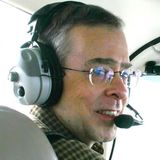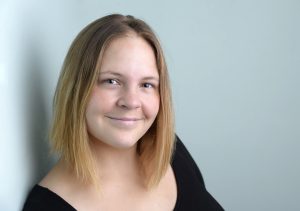 Stine graduated from Copenhagen Business School with a Masters degree in Business Administration and Information Management in 2016, and went to work for a small consultancy firm. She started with “Drag&Drop” programming in SSIS and other similar tools, but quickly moved into project management, accounting, and Business Intelligence.
Stine graduated from Copenhagen Business School with a Masters degree in Business Administration and Information Management in 2016, and went to work for a small consultancy firm. She started with “Drag&Drop” programming in SSIS and other similar tools, but quickly moved into project management, accounting, and Business Intelligence.
Covid-19 intervened just as she was looking forward to coming back from maternity leave, and she decided not to burden her previous employer by returning to a job as a consultant in a world where no-one really wanted external consultants for an unknown length of time. Since Dyalog was looking for a new accountant due to Helene’s retirement, she accepted that job. She hopes that she will soon have an opportunity to help the development team with project management as well.
If her last name sound somewhat familiar, it is because Stine is closely related to Gitte and Morten! Stine grew up in a household where APL was a part of everyday life. After swimming against the tide for many years she finally accepted a bet with Morten to give his “hobby” (APL) a try if he gave her hobby (Roleplaying) a try in return. As a result, she spent 2 weeks in Montreal trying to learn from one of the best teachers of APL. But while she learned a little French from staying at Dan Baronet’s house, the APL did not really stick. Morten sadly never got around to roleplaying, but he did take up Zumba many years later, so they consider the deal settled!
Several years later, while looking for something to do as a summer job, she took a job at Insight Systems learning APL while proofreading the new Dyalog APL book by Bernard Legrand and correcting data in the CRM system.
For several years she was hired to help run the help desk at the user meetings whenever they took place in Denmark. Her last appearance at a Dyalog user meeting was as a Zumba instructor in 2012 in Elsinore.
Stine has spent most of her life dancing around the edges of Dyalog, coming to the user meetings and chatting with customers and developers alike, hanging out at the office in Bramley, listening in whenever Gitte and Morten talked shop at the dinner table, trying to learn APL, but realizing that where her heart truly lies is in organizing and managing things. So, while working for an APL company feels like coming home, her ambition is not to take part in development, but instead to take care of all the details and bureaucracy so that the rest of our brilliant team can focus on what they truly love!
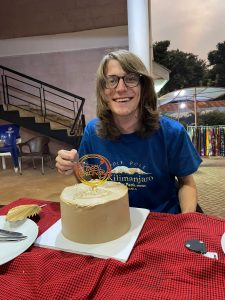 As is often the case these days, Silas found APL through online programming language discussions – both in various forums and through videos (Aaron Hsu’s Co-dfns and John Scholes’ Game of Life demonstatration in particular) – whilst attempting to understand the more esoteric ideas and their theoretical underpinnings provided by Scheme and other functional languages. After discovering APL, Silas attempted to use it for his Data Analysis coursework, sticking primarily to a small set of primatives. However, hitting WSFULLs with the datasets required meant that APL remained just a fun system to play with, which led to an understanding of where (
As is often the case these days, Silas found APL through online programming language discussions – both in various forums and through videos (Aaron Hsu’s Co-dfns and John Scholes’ Game of Life demonstatration in particular) – whilst attempting to understand the more esoteric ideas and their theoretical underpinnings provided by Scheme and other functional languages. After discovering APL, Silas attempted to use it for his Data Analysis coursework, sticking primarily to a small set of primatives. However, hitting WSFULLs with the datasets required meant that APL remained just a fun system to play with, which led to an understanding of where (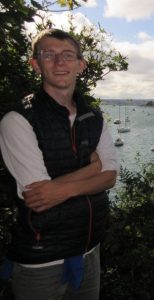 When not programmaing, Silas can be found enjoying a good book and the occasional summer hike with friends and family.
When not programmaing, Silas can be found enjoying a good book and the occasional summer hike with friends and family.

 Follow
Follow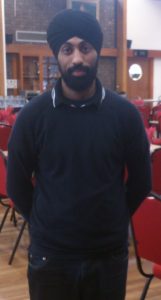 Karta joined Dyalog in April, and is yet to meet anybody in person although he’s been told that this is not necessarily a bad thing! After completing his doctoral degree in theoretical physics, Karta stumbled upon Dyalog and APL entirely by happenstance. Being often captivated by things that look unfamiliar to him, and having an interest in most things, it was a code golf question that was answered in a strange, yet mathematical-looking language that took him to the profile of the poster, who happened to mention they were employed by Dyalog and currently hiring. He sent an email enquiring about the opportunity and, several remote interviews later, was happy to be hired as a C/C++ developer working on the interpreter.
Karta joined Dyalog in April, and is yet to meet anybody in person although he’s been told that this is not necessarily a bad thing! After completing his doctoral degree in theoretical physics, Karta stumbled upon Dyalog and APL entirely by happenstance. Being often captivated by things that look unfamiliar to him, and having an interest in most things, it was a code golf question that was answered in a strange, yet mathematical-looking language that took him to the profile of the poster, who happened to mention they were employed by Dyalog and currently hiring. He sent an email enquiring about the opportunity and, several remote interviews later, was happy to be hired as a C/C++ developer working on the interpreter. In his spare time, Karta enjoys expanding his knowledge of both scientific and technical pursuits, and tinkering around with software and hardware systems, amongst his eclectic interests. When not found reading papers or learning an unfamiliar branch of mathematics, he will be caught thinking of a new engineering project to occupy his time, or stumbling through learning a new language, or maybe just delighting in the latest vixra paper.
In his spare time, Karta enjoys expanding his knowledge of both scientific and technical pursuits, and tinkering around with software and hardware systems, amongst his eclectic interests. When not found reading papers or learning an unfamiliar branch of mathematics, he will be caught thinking of a new engineering project to occupy his time, or stumbling through learning a new language, or maybe just delighting in the latest vixra paper.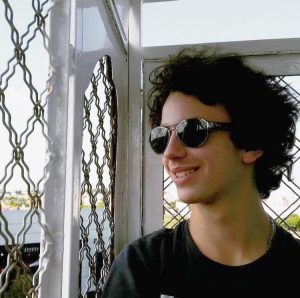 The story of how Rodrigo got his first internship at Dyalog is, in his opinion, a textbook example of serendipity. As 2020 started, Rodrigo began actively participating in an online code golf community, where people try to solve programming challenges in as few bytes of code as possible. Whilst his golfing skills were possibly lacking, the challenges he posted were usually well accepted. Posting many challenges meant Rodrigo got exposed to answers in all sorts of programming languages, from C, Java, Python and JavaScript, to Jelly, 05AB1E, Husk…and APL. Because of the context and the aspect of it, Rodrigo first thought APL was one of those “esolangs” and not a serious programming language.
The story of how Rodrigo got his first internship at Dyalog is, in his opinion, a textbook example of serendipity. As 2020 started, Rodrigo began actively participating in an online code golf community, where people try to solve programming challenges in as few bytes of code as possible. Whilst his golfing skills were possibly lacking, the challenges he posted were usually well accepted. Posting many challenges meant Rodrigo got exposed to answers in all sorts of programming languages, from C, Java, Python and JavaScript, to Jelly, 05AB1E, Husk…and APL. Because of the context and the aspect of it, Rodrigo first thought APL was one of those “esolangs” and not a serious programming language.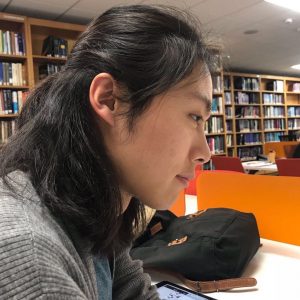 Shuhao joined Dyalog straight after he completed his Master’s degree in quantum computing, which happened to be during the second COVID-related lockdown in the UK. This has given him a quite unusual experience of starting a career as he has yet to meet a single member of the Dyalog team face to face! Shuhao obtained his Bachelor’s degree in mathematics – although he was interested in computer science, he studied mathematics as a way of looking for the root of CS and computing. He has broad interests across different software including Matlab, Python and LaTeX and has developed a solid knowledge on C++.
Shuhao joined Dyalog straight after he completed his Master’s degree in quantum computing, which happened to be during the second COVID-related lockdown in the UK. This has given him a quite unusual experience of starting a career as he has yet to meet a single member of the Dyalog team face to face! Shuhao obtained his Bachelor’s degree in mathematics – although he was interested in computer science, he studied mathematics as a way of looking for the root of CS and computing. He has broad interests across different software including Matlab, Python and LaTeX and has developed a solid knowledge on C++.